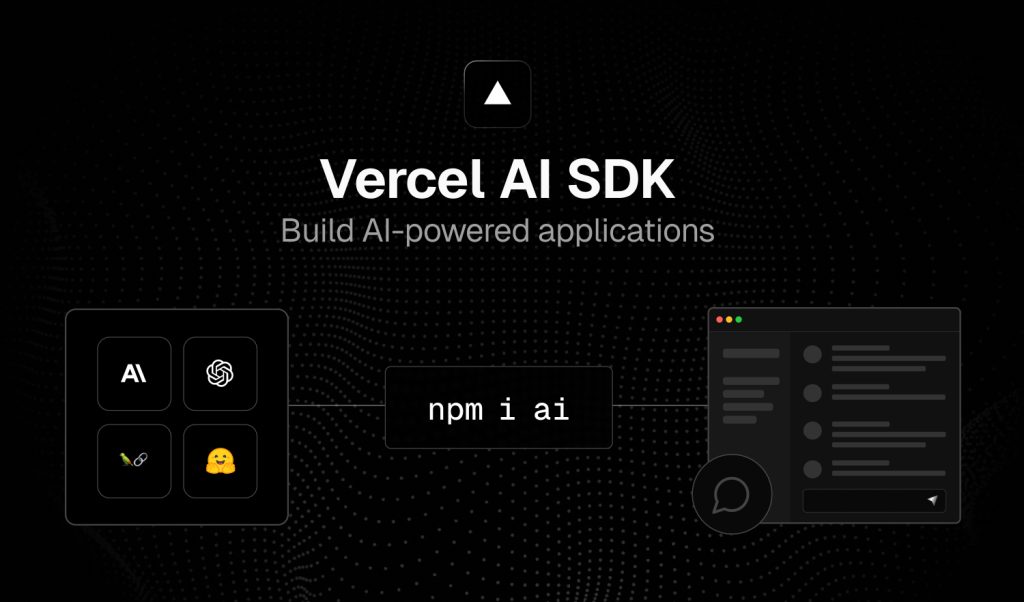In the fast-paced world of frontend development, few companies have made a more significant impact in the 2020s than Vercel. As the steward of the popular React framework, Next.js, Vercel has continually adapted to the changing landscape of web development trends. In July 2020, when we first explored Vercel’s journey, the company was embracing the Jamstack trend and prominently using the term “serverless” in its marketing. However, with Jamstack fading in popularity and “serverless” becoming less of a buzzword, it comes as no surprise that Vercel has now ventured into the realm of generative AI.
The Rise of Vercel’s AI SDK
Vercel’s relatively new AI Software Development Kit (SDK) has rapidly gained traction among JavaScript developers. Currently, it boasts an impressive 40,000 weekly downloads on npm. The driving force behind this surge in popularity is the widespread adoption of AI applications in 2023. Vercel’s CEO, Guillermo Rauch, recently tweeted that “building AI apps is the #2 reason folks are signing up to @vercel these days, ahead of social/marketing & e-commerce, based on signup surveys.” Although he didn’t explicitly mention what ranked as #1, a commenter suggested that it was the ease of deploying Next.js projects.
Unveiling the Vercel AI SDK
So, what exactly is the Vercel AI SDK? Vercel defines it as an “interoperable, streaming-enabled, edge-ready software development kit for AI apps built with React and Svelte.” It currently offers support for React/Next.js and Svelte/SvelteKit, with Nuxt/Vue support “coming soon” (Update: Vercel now supports Nuxt and Solid.js frameworks). On the machine learning model (LLM) side of things, the SDK includes “first-class support for OpenAI, LangChain, and Hugging Face Inference.” To complement the SDK, Vercel provides a playground that features over twenty LLMs ready for use.
The appeal of the Vercel AI SDK mirrors what made Vercel popular among JavaScript developers from the start: it abstracts away the complexities of infrastructure management in application development.
Comparing Vercel’s AI SDK to Other LLM App Stack Tools
How does Vercel’s AI SDK stack up against existing LLM app stack tools like LangChain? We reached out to Guillermo Rauch for insights. According to him, the Vercel AI SDK is “focused on helping devs build full, rich streaming user interfaces and applications with deep integration/support for frontend frameworks.” On the other hand, “LangChain is focused on ETL (Extract, Transform, and Load) and prompt engineering.”
Rauch further explained that the AI SDK offers integration with LangChain. Developers can utilize LangChain for prompt engineering and then seamlessly incorporate the AI SDK for streaming and rendering output within their applications. For more details, he directed us to the LangChain documentation page in the Vercel documentation.
Summary
Vercel’s evolution from embracing Jamstack and serverless to pioneering generative AI showcases its commitment to staying at the forefront of frontend development trends. With the Vercel AI SDK, JavaScript developers have a powerful tool at their disposal, simplifying the creation of AI-driven applications and enriching user experiences. As the development landscape continues to evolve, Vercel remains a company to watch, consistently adapting and innovating to meet the ever-changing needs of developers.





Leave a Reply